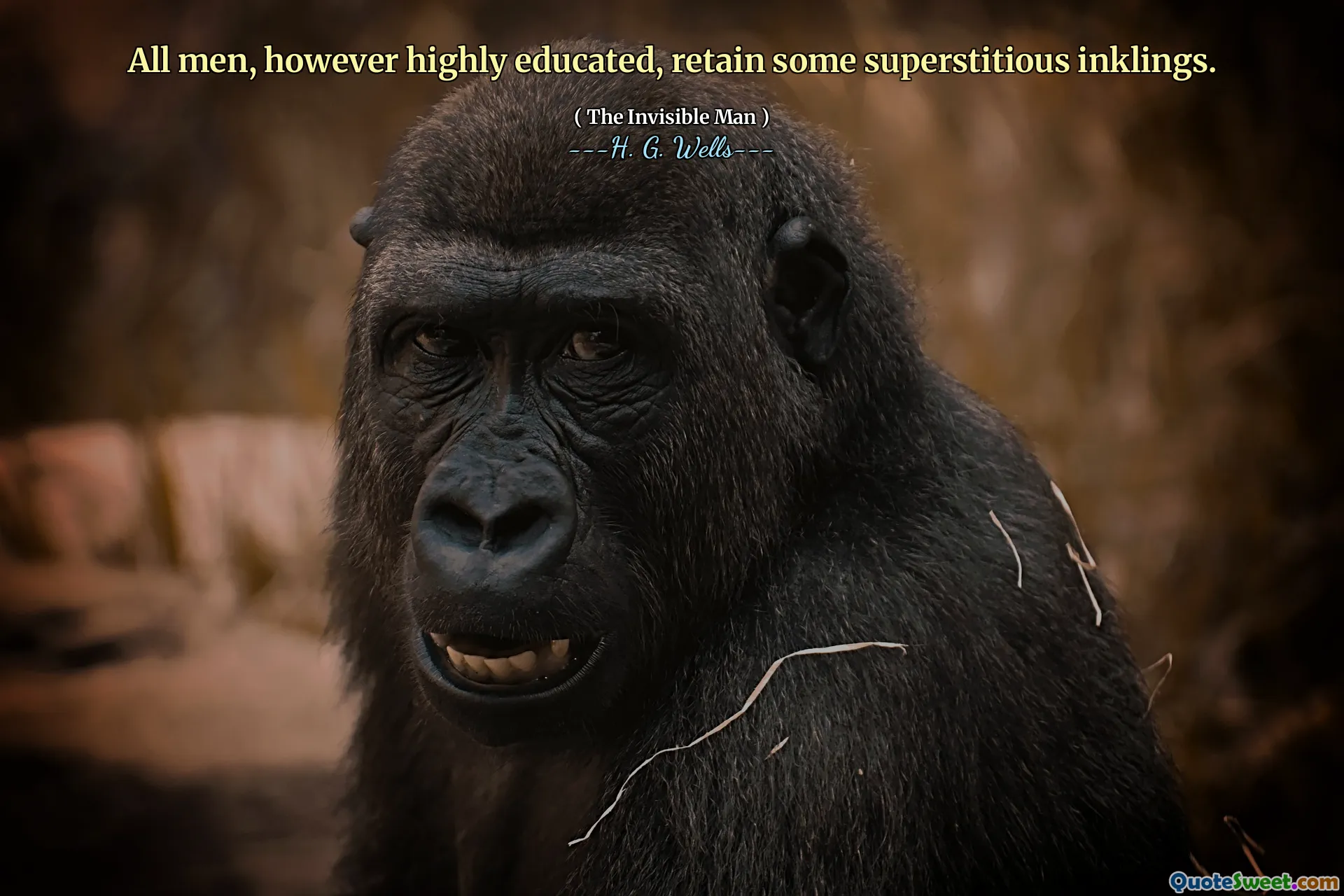
All men, however highly educated, retain some superstitious inklings.
In "The Invisible Man," H.G. Wells suggests that education and intelligence do not completely erase the presence of superstition in people's minds. His assertion points to the idea that regardless of one’s intellectual achievements, there remains an underlying belief in the irrational or the unexplained. This hints at a fundamental aspect of human nature, where the unknown inspires both fear and curiosity.
Wells' perspective encourages readers to reflect on the persistence of superstitions throughout history, as they often coexist with rational thought. Even educated individuals may find themselves influenced by these lingering beliefs, underscoring that human experience encompasses both knowledge and the remnants of archaic ideas. This dynamism between the known and the unknown shapes our understanding of the world.











